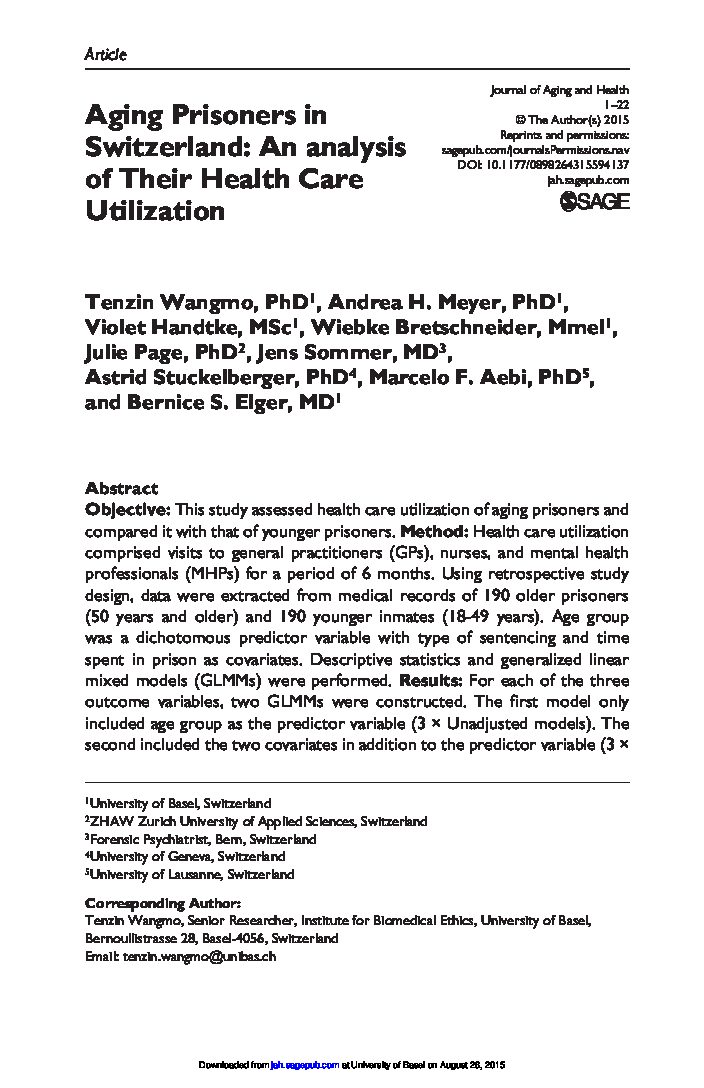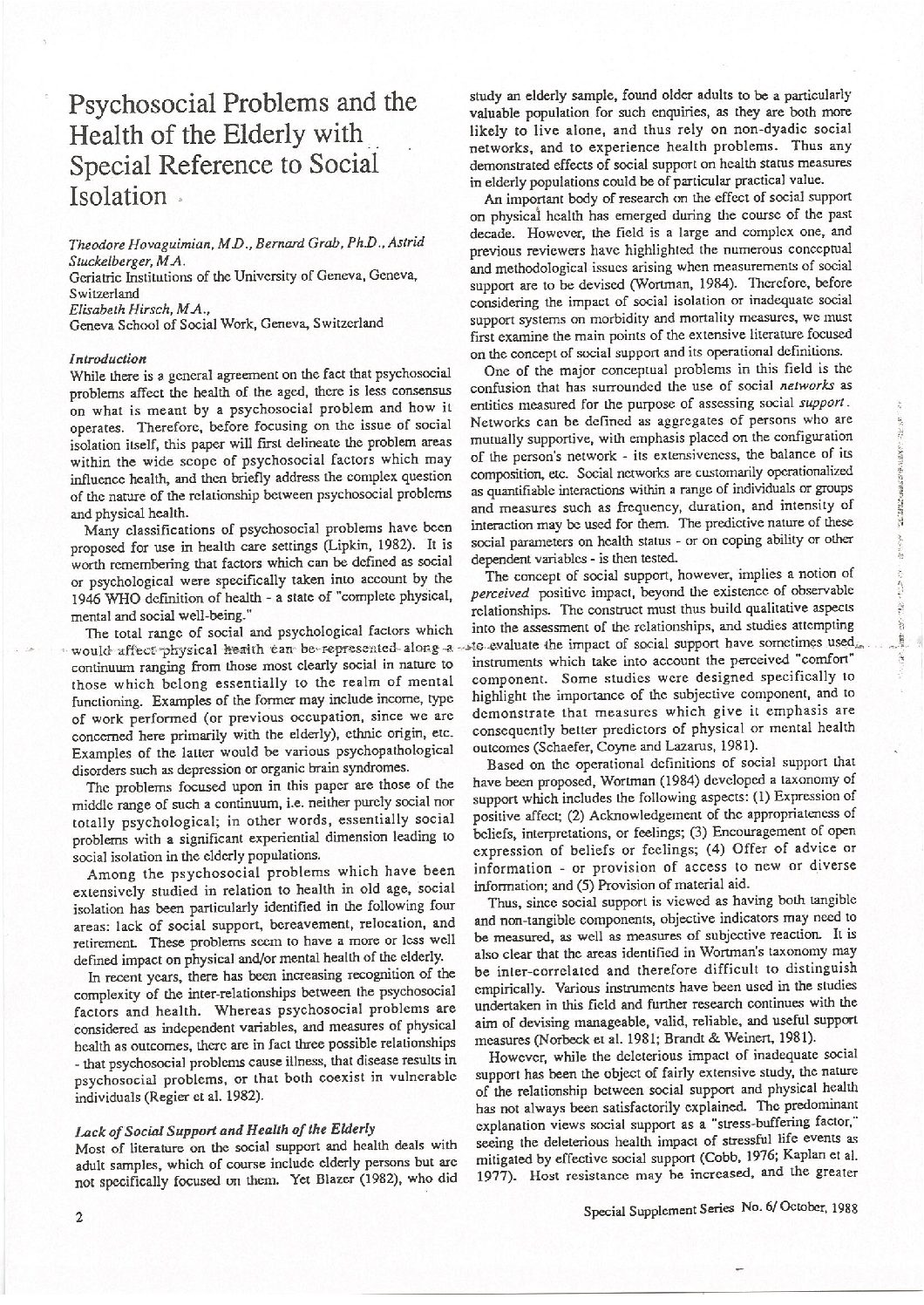Aging Prisoners in Switzerland: An analysis of Their Health Care Utilization
somdn_product_pageRelated products
A Paradigm for Global Family in a Culture of Peace – Intervention of Dr Astrid Stuckelberger
A Paradigm for Global Family in a Culture of Peace – Intervention of Dr Astrid Stuckelberger
The Global Family has changed!
Have we realized …..
- that people in the world are living longer and better lives than ever before in the History ofmankind
- that families have now extended up to 4 to 5 generations living at the same time, sharingmemories and daily events, ….of which 2 to 3 generations are retired, often very active retirees
indeed
- that families live together despite distance thanks to technology such as mobile phone, internet,webcam grand‐parenting, etc
- that families are complex today but are giving rise to a new concept of the family, whetheralone, divorced and remarried, whether orphan from HIV‐AIDS and adopted by a substitute grand‐parent, we are witnessing a global and intergenerational solidarity. This is new. Even at the
5th World Meeting of Families of the Catholic church in Valencia, Spain where I was invited, thanks to some lobby work of some of us, for the first time, older grand-parents were mentioned and invited to speak on stage! How long do we have to wait until the concept of the family will encompass all generations, all situations and give this genuine global family feeling we are all interlinked, interrelated and interdependent on a small part of the universe where people have the choice to love each other beyond race, nationalities, geography and more..
Anti Aging
Ewig jung und gesund zu bleiben, ist ein alter Traum der Menschheit. Heute gibts medizinische Möglichkeiten, die es erlauben, sich diesem Wunsch anzunähern.
Bioethics Caribe
- Abstracts
- Ethics, Equality & Stigma – Some Issues of Relevance to the English-Speaking Caribbean
- The Changing Face of Stigma: Social Taboos and Ethics
- Disclosure of STD infection to sex partners in Louisiana
- Ethics and Inequalities Associated with Caribbean Impacts of Climate Change
- The Ethical Challenge Posed by Stigma to Public Health Promotion Campaigns and the Health- Care Professional Patient Interaction
- Human Rights: A Framework for Confronting Stigma in the Caribbean
- Ethics, Equality and Stigma: a Canadian Perspective
- Ethical dilemmas of critically and terminally ill HIV/AIDS patients in the ICU
The roles of a Grandmother in African societies – please do not send them to old people’s homes
October 1 is the International Day of Older Persons, a recognition that has been in place for over 20 years now, but I must say very few stop to commemorate this day – myself included [1].
The day is supposed to be celebrated by raising awareness about issues affecting the elderly and to appreciate the contributions that older people make to society [1,2]. What is the one thing that most of us today are going to become? – get older [3]. Populations around the world are rapidly ageing. Age- ing presents both challenges and opportunities. Societies that adapt to this changing demographic and invest in Healthy Ageing can enable individuals to live both longer and healthier lives and for societies to reap the dividends. 80% of people over 60 will live in low-and middle-income countries by 2050 [2,4]. In Africa, old age is a social category experienced in relation to other generations, especially to youth while [5] as in Europe old peoples’ homes have been established and more or less accepted as the living ar- rangement for the elderly. This is however without draw backs. Though moving into a nursing home is an individual experience [6], people who move into a nursing home experience different types of chang- es which they feel to a greater or lesser degree as stressful. The change in social status, the impact on au- tonomy, the feeling of having no place to call home, the change in social contacts, and the reduction of habitual activities rank first in the presentation of the results and endanger the people’s identity which they had before [6,7]. Nursing home residents have experiences which they perceive as compulsive and degrading [8].








